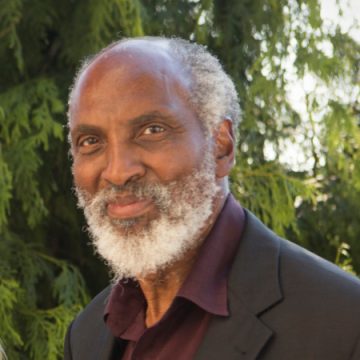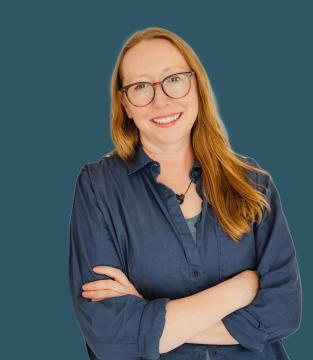Five Year Reflection: (Internal) Talent Management for (External) Impact
DATE
October 6, 2017
Contributors: Stephanie Andrews and Jen Ford Reedy
Our tagline is investing in great ideas and the people who power them.
We know that the future of our region will be defined by the talents and ambitions of the people in it. The same is true for the Bush Foundation. We invest in the development of our staff members to advance our purpose of making the region better for everyone. We see this as a smart investment with long-term yields. We want to enable staff members to do more good in their current roles at the Foundation and in every future role, inside or out of the Foundation.
The nonprofit sector generally underinvests in its workforce. We hope to model prioritizing investing in people and, at the same time, develop leaders who can have lasting career impact beyond the Bush Foundation.
For the past five years we have been working to embed our belief in the power of people in our own operations in four ways:
1. Bring leadership development into our own operations
We have been committed to leadership development in our region for 50 years. We saw a tremendous opportunity to bring that same commitment in house, to develop our own staff and become a talent development engine for our region. To do so, we took these actions:
Dedicate staff capacity for internal people development
We created one (and then added another) position to support this change. The Talent Development Director (Stephanie’s role) and the Talent Development Coordinator are dedicated to leading our people programs and processes — from hiring and onboarding to group training, individual coaching, career planning and support. Most of the transactional elements of human resources, like compensation and benefits, are still handled by our finance team. Doing this well has required great partnership and close coordination.
Focus on people’s potential, not just their jobs
Our focus is helping our staff imagine and work toward a long-term vision for themselves. We help them build the skills to excel at their current jobs and to explore and be prepared for future roles, within or outside of the Bush Foundation. While we love having some staff stay and make their career with the Foundation, there are limited advancement opportunities given our size. (In the past five years we’ve had 10 internal candidates apply for open positions with a 60% success rate.) We also believe that turnover is a good thing, both for us and for those organizations that hire our staff alumni. We actively help and celebrate when Bush staff members are ready to leave us for other opportunities.
Invest in individual development
We give every staff member a budget for creating an annual individual development plan (currently $3,500 per year). Staff members have a lot of latitude in how they spend those funds. We’ve seen people use the funds for coaching on public speaking, improv classes, and data visualization workshops, in addition to more standard conference and training opportunities. We want to keep getting better at helping staff members find creative and useful ways to develop their skills, share what they’ve learned and make time for learning. For us, time is often a greater constraint on professional development than money and we try to find ways that we can use on-the-job opportunities like temporary vacancies and ad hoc projects for leadership development.
Create a learning culture
We have some required group learning sessions on organizational priorities (such as intercultural competence and supervisor skills) as well as lots of optional trainings to build skills identified as needed by a critical mass of staff. Group classes have included Finance 101 (taught by our CFO), Philanthropy 101 (taught by Jen), and workshops on writing and productivity. Beyond these specific opportunities, we work to build a culture that supports and encourages learning through tactics like hosting monthly “lunch and learns,” writing learning papers (like this one), and sharing lessons at staff meetings. We also encourage staff-initiated learning efforts, like our equity book club and earth week activities.
2. Increase the diversity of background and perspectives of our staff
All we are is people. Getting and keeping a great mix of people is critical to our success. Diversity of perspectives makes decisions better in general and is particularly important in philanthropy. The nature of our job is judging the ideas of others and investing in change in all types of communities. Our ability to do this well is directly tied to our ability to understand the experiences and appreciate the context of others. To be more effective, we have taken these actions:
Change recruiting and hiring practices
We’ve made many changes to how we recruit and hire—from rethinking minimum job qualifications to intentional outreach aimed at improving the diversity of our applicant pools. In particular, we have focused on diversity of professional background as well as racial and ethnic diversity. Of the 21 new people we’ve hired to work at the Bush Foundation since September 2012, 86 percent have been from outside the field of philanthropy and 70 percent have been professionals of color. If we include our internal fellows (see below) the figures are 86 percent and 76 percent respectively.
Establish an internal fellows program
We created an internal fellowship program for people from communities underrepresented in philanthropy leadership to work at the Foundation for three years. Now operated by the Minnesota Council on Foundations, the program is called the Ron McKinley Philanthropy Fellowship. We have hosted 11 fellows and hired four of them into regular staff positions. While it has posed challenges to have core staff members who are oriented, coached and paid by an outside entity, it has been an integral part of our work to focus on internal talent development and elevate our work on inclusion. (By the way, we don’t believe the core issue in staff diversity in philanthropy is the pipeline. In our experience, there are plenty of talented professionals of color who would like to work in philanthropy. The bigger issues are changing hiring practices and organizational cultures. Given the world as it is, however, we hope that having more talented professionals of color with philanthropy experience on their resumes will help to diversify the ranks of foundation leadership.)
Practice inclusivity
We know that we can’t attract and keep staff of all backgrounds unless we make real changes to ensure our workplace supports and includes people of all backgrounds. We have made it a priority to build our collective intercultural competence and our skills in operating inclusively. This work has included training, many conversations and “action learning teams” charged with examining some aspect of our work, such as our bereavement policy or how we select vendors, and recommending policy and operating changes. This is, and always will be, ongoing work.
3. Redefine cultural “fit” to support our mission and values
Getting a great mix of people requires getting good at predicting whether or not a new person will be happy and successful at Bush. “Fit” can be a bad word in hiring conversations, as it can reinforce sameness and be a barrier to increasing staff diversity of perspective and background. We have tried to redefine “fit” in a way that supports bold hiring while also allowing us to be pragmatic in assessing whether a potential hire is likely to thrive at the Bush Foundation. Toward that end, we have taken these actions:
Define operating values
In 2012-2013 we had an inclusive process with the Board and staff to establish our operating values. These values were intended to define our aspirations for how we work together and with communities. As we rolled them out, we tried to detail exactly what these values should look like in our everyday interactions and decisions. We talk about the values a lot and they are a core part of our performance review process.
Learn what values guide our strategic and operating decision.
Find the best match
Building on the operating values and our ever-growing body of experience, we are getting better and better at describing what it is like to work at the Bush Foundation and the key attributes of people who are most likely to thrive in our environment. We’ve strengthened our recruiting through strategies like hosting webinars for every open position to talk about the role and what it is like to work at the Foundation. Candidates tell us that this has humanized the process for them and helped them feel less nervous when they were called for an interview. Often, we hear that a webinar helped a candidate decide not to apply for a job that wasn’t right for them, and that is also a huge win — saving the Foundation and the candidate time and effort. We’ve also strengthened our screening through tactics like including more staff from across the Foundation in hiring decisions, doing face-to-face interviews rather than phone screens in even the earliest stages of the process, and giving candidates real-life exercises that let them try out the work and let their potential colleagues see them in action.
Improve onboarding
Effective onboarding is essential and we’re constantly trying to improve the way we orient new hires to the Bush Foundation culture. We have a formal onboarding process in which we try to go beyond the (very important) how-to-do-your-timesheet training to more cultural orientation. For example, every new employee meets with Jen in their first week to talk about the Foundation’s history and values. By the time a person has completed the standard onboarding process, they will typically have met everyone and sat down to talk with at least one-third of the Foundation’s staff.
4. Managing performance to do more good, every year
To do the most possible good with the resources left to us by Archibald Bush, we must continuously become more effective in our work. This requires a performance management system that inspires and supports us all to do more good every year. We’ve taken actions including:
Revamp performance evaluation process
We take our performance reviews very seriously. We have worked hard to make the process more helpful and better calibrated each year. Our most recent changes are to de-emphasize performance ratings (including changing how we do compensation) and to radically focus on skills development. The process is anchored in a continuously updated and refined set of development goals, which we call MGEYs, for “more good every year.” The idea is that each of us should be working on two to four MGEYs at any time, with whatever support is needed from others.
Get better at feedback and coaching
To deliver on the promise of being an organization that continually develops our talent, we have to excel at giving and receiving feedback. We must excel at helping each other see our individual growth opportunities and supporting that growth. Ensuring we do this consistently well across the Foundation has been hard, as supervisor skills and styles differ. We have monthly supervisor trainings to get better at feedback, coaching and other skills, and we are dedicated to continue working on it.
CONCLUSION
The process of reflecting on these past five years makes us feel proud about both the direction and magnitude of change — even as we know that we have more work to do on every front.
We see all of these changes as fully consistent and integrated with the strategic changes we’ve made as an organization during this time. And they are fully consistent and integrated with the larger cultural changes we have made to advance our strategy and live our values.
We really do believe in the power of people. We feel good about the ways we are getting better at reflecting that belief in everything we do — strategically and operationally. We are committed to supporting and developing our own people to power the Bush Foundation and beyond.
Continue reading
-

News
Power of Bridging event
Mark your calendars for a special community event with john a. powell! Thanks to our friends at MPR News, we'll be hosting john at the Fitzgerald Theater on December 2 and hope you can join us!
-

News
Celebrating the 2025 Bush Prize honorees
Learn more about the 2025 Bush Prize honorees who are helping to make our region better for everyone!
-

News
Welcome to new Bush staff members
We are celebrating some new Bush colleagues and hope you get to meet them soon!